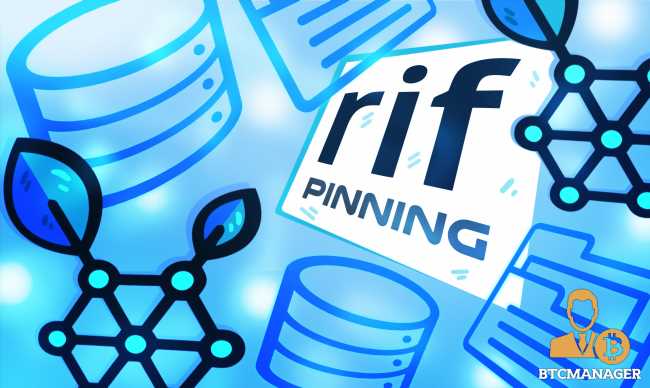Creators of RIF Storage Services are introducing a new solution dubbed RIF Pinning that will once and for all address a loophole in the present decentralized storage architecture, InterPlanetary File System (IPFS). RIF Pinning aims to encourage participation through deserving incentivization.
IPFS is a Data Shield Preserving Privacy
Admittedly, the IPFS is a technology that’s still at nascent stages.
It has already proven disruptive, destabilizing legacy storage systems. Most importantly, it protects fundamental rights.
This is because the migration from physical to digital introduced new, unexpected weakness, allowing agents to assail guiding principles of people’s liberties, especially those centered on privacy preservation.
As a new data storing architecture, IPFS has a solution to effectively protect the end-user through cryptography. Precisely, it first does this by overhauling the location-based system employed by traditional providers, sealing backdoors.
IPFS has an Economic Incentive Problem
Still, the main weakness with IPFS is its reliance on a distributed ledger.
Inherently, every blockchain design dictates that every smart contract or transaction moved within the distributed ledger incurs an expense. Therefore, the absence of an economic incentive in IPFS means implementers of this novel data storage solution end up racking up millions in fees.
It can be a headache and even slow down the development of the ecosystem because blockchain projects only thrive due to incentivization. Related gear and injection to the network cost both time and money.
Without means to encourage users to join in, the project will naturally wither regardless of how promising it was on paper.
Why RIF Pinning is The Solution
To counter this, RIF Pinning is introducing an incentivization model allowing a clear definition of who handles the cost of keeping the network and ecosystem operational.
Through RIF Pinning, a user can pay for the service of other computers on IPFS to pin their files. Concurrently, it allows IPFS providers to list their services and set their prices per GB per month.RIF Pinning makes sense and primarily solves a major pain point in the IPFS network.
Ordinarily, when a file is uploaded from a given computer (node), it will remain in existence provided it remains pinned to that computer. The problem is, the node being part of a distributed network would also require the same file to be pinned by other computers that make up the ecosystem. To “pin” the file for accessibility, node operators expect an incentive to meet operational costs.
Joining the Network
Using RIF Pinning, nodes that accept to “pin” a file would be incentivized, receiving payment in RBTC or RIF tokens.
RBTC is “smart” BTC. Every RBTC is pegged 1:1 to Bitcoin.
On the other hand, the RIF token allows access to the RIF OS services. Users who wish to rent storage space can do so in three easy steps after choosing their provider from the decentralized storage marketplace.
Providers of decentralized storage space through RIF can also opt-in and receive payment for pinning files. The process requires administration and technical skills but isn’t hard. Nonetheless, providers must first apply to be whitelisted. The provider will also need to run the Storage Pinner application and generate a Peer ID. Once ready, he/she would create an offer stating the capacity and billing plans as an IPFS node.
Other Use Cases
Beyond Pinning, RIF Storage Services is building a unified interface that will ease access to the IPFS and other networks in the future. The platform will also enable nodes to guarantee the availability of a file during the required period. Journalists and suppressed media outlets or groups can also use the network for censorship-resistant publishing of content.
Also, the platform can act as a portal for users to upload or download files to decentralized networks using their rails.
To Wrap It Up
Overly, the integration of RIF Storage Services into shared economies presents a very compelling use-case that would accelerate the adoption of decentralized storage economies. Notably, censorship- resistance and privacy in the age of mass surveillance can further open up more opportunities. Subsequently, it would ignite a shift towards data control with an incentivization model that profits and protects participants.
Related posts:
Source: Read Full Article
